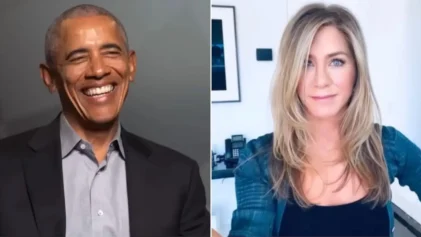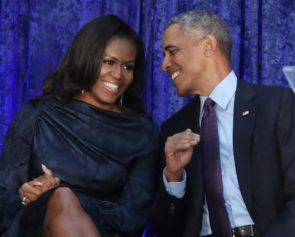On a day when three presidents, including the first black president, spoke to the nation from the steps of the Lincoln Memorial, perhaps no one could claim a greater sense of ownership of that space than Congressman John Lewis. A young Lewis spoke at the first March on Washington 50 years ago and carries the scars of the civil rights movement on his body, after his skull was fractured by white racists during the Freedom Rides in 1961.
Presidents Carter and Clinton recounted the struggles the nation overcame during King’s time and President Obama eloquently exhorted America to move beyond the many things that we use to divide us. Yet Lewis harkened back to the mood that propelled the civil rights workers and their leader, Martin Luther King Jr.—and how much work still needs to be done to achieve his dream.
“The spirit of Dr. King’s words captured the hearts of people not just around America but around the world,” said Lewis, who was first elected to Congress in 1987, representing Atlanta. “On that day, Martin Luther King, Jr. made a speech, but he also delivered a sermon. He transformed these marble steps of the Lincoln Memorial into a modern day pulpit. He changed us forever.”
Lewis said he has a simple rejoinder for those who would claim that nothing has changed since King’s day.
“Sometime I hear people saying nothing has changed, but for someone to grow up the way I grew up in the cotton fields of Alabama to now be serving in the United States Congress makes we want to tell them come and walk in my shoes,” Lewis said. “Come walk in the shoes of those who were attacked by police dogs, fire hoses and nightsticks, arrested and taken to jail.”
Lewis, who was the youngest speaker at the March at age 23, said the leaders were invited to the White House by President Kennedy after the march was over.
“He met us, standing in the door of the Oval Office, and he was beaming like a proud father,” Lewis said. “As he shook the hands of each one of us, he said, you did a good job, you did a good job. And he said to Dr. King, and you had a dream. Fifty years later we can ride anywhere we want to ride, we can stay where we want to stay. Those signs that said ‘white’ and ‘colored’ are gone. And you won’t see them anymore—except in a museum, in a book, on a video. But there are still invisible signs buried in the hearts in humankind that form a gulf between us. Too many of us still believe our differences define us instead of the divine spark that runs through all of human creation.”
Lewis said there are many signs around us of the work that still needs to be done—New York’s stop-and-frisk policy that violated the constitutional rights of millions of black and brown men in New York, according to a federal judge, the Trayvon Martin case in Florida, the mass incarceration of millions of Americans, immigrants hiding in fear in the shadow of our society, unemployment, homelessness, poverty, hunger and the renewed struggle for voting rights.
“So I say to each of us today, we must never, ever give up,” he said. “We must never give in. We must keep the faith and keep our eyes on the prize. We did go to jail, but we got the Civil Rights Act. We got the Voting Rights Act. We got the Fair Housing Act. But we must continue to push…And the dean of the civil rights movement once said, we may have come here on different ships, but we all are in the same boat now. So it doesn’t matter whether they’re black or white, Latino, Asian- American or Native American, whether we are gay or straight—we are one people, we are one family, we are all living in the same house—not just the American house, but the world house.”


